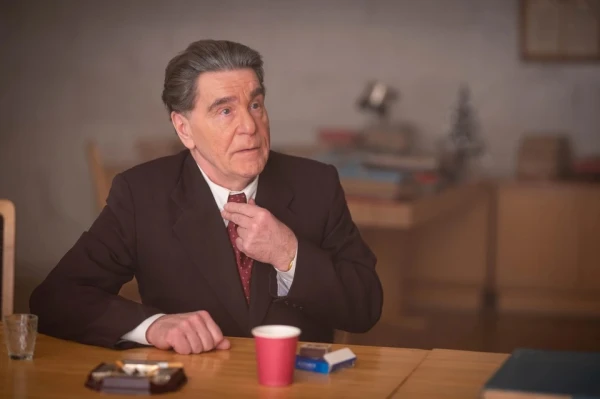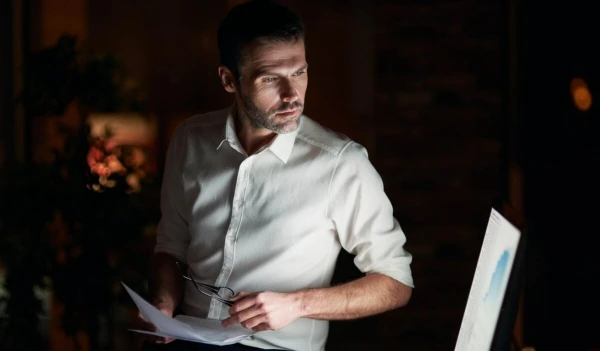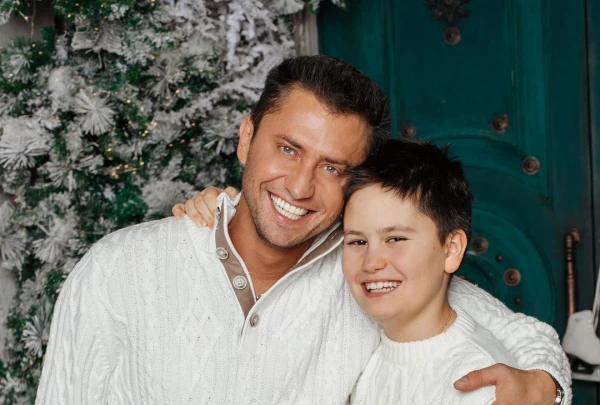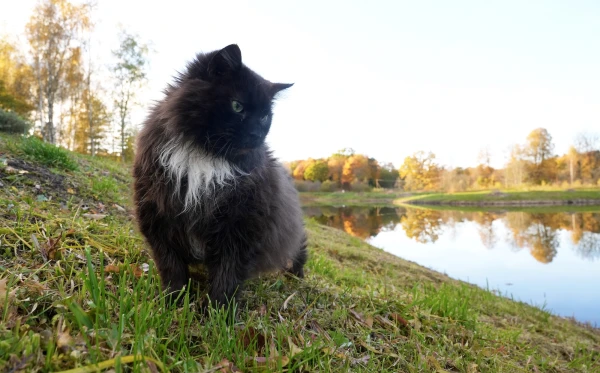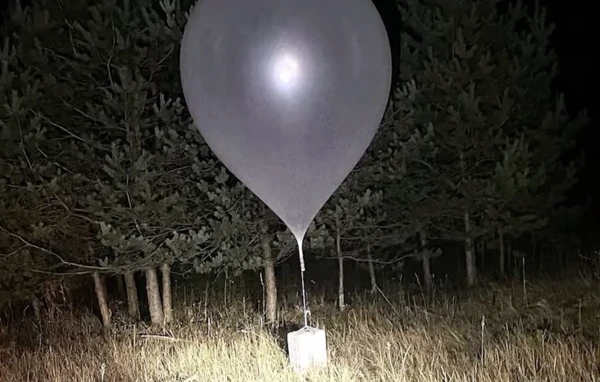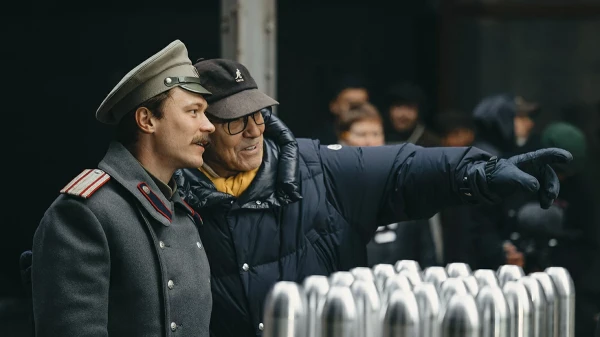
This is not a detective, but a complex, polyphonic, detailed exploration of the nooks of history.
In the large-scale film novel "Chronicles of the Russian Revolution," aristocrat Ariadna Slavina (Yulia Vysotskaya) draws into revolutionary work her young admirer, pianist Lesha Tikhomirov (Nikita Karataev). The underground movement is led by the elusive and indestructible revolutionary known as Luther (Alexander Mizev), reminiscent of a young Rutger Hauer from "Blade Runner." Opposing them is young officer Mikhail Prokhorov (Oscar nominee Yura Borisov) – perhaps the only honest man in the rotten tsarist security service.
Andrei Konchalovsky is a living link to the past, co-author of Tarkovsky's scripts and director of the thaw-era classics "The First Teacher" and "The Story of Asya Klyachina." In the 1980s, he successfully worked in Hollywood – his short film "The Broken Cherry Tree" and the action parable "Runaway Train" received Oscar nominations. Since the 1990s, Konchalovsky has increasingly returned to the tragic pages of 20th-century history – Stalin's repressions in "The Close Circle," Nazi concentration camps in "Paradise," the "Novocherkassk Massacre" in "Dear Comrades." And now he releases "Chronicles of the Russian Revolution" – his second series after "Odyssey" for HBO (1997), for which he won an Emmy.
Andrei Konchalovsky tells the media why he decided to change the original title "Heroes and Degenerates," what historical prototypes the main characters have, and reflects on the role of snow in Russian political history.
"You Must Decide for Yourself"
– Can we say that "Chronicles of the Russian Revolution" is your most ambitious project? In terms of production – if we talk about the number of storylines, characters, crowd scenes, number of shifts, etc. Is it larger in scale than "Odyssey" and even the poem "Siberiada," which you filmed in the USSR?
– It’s easiest to say "yes." But you know... With experience, work becomes functionally easier – if we talk about directing as the art of leadership. Fifty years ago, [the length] of one hour and forty minutes was a lot for me. In fact, there are many things in the profession of a director that can be resolved with a wave of the hand – but in youth, the hand doesn’t wave in the right way. Therefore, my main principle today is to find the right people, give them a task, and not interfere. If they can’t cope, then we need to find those who can. And my task as an organizer is to direct everything in a common direction.
– The theme of revolution and its consequences has appeared in your films more than once – we can recall your debut "The First Teacher" and the same "Siberiada." When did you first think about making a chronicle film about the revolution? Perhaps back in the 1990s, when the archives opened?
– You know, I can hardly remember why my first child was born. Was it a lavish dinner or love? From this perspective, the same can be said about some ideas. Sometimes it all starts with the need to do something to avoid idleness. Sometimes – although, at my age, this happens less often – you start with a frame in your head that you consider genius, but you don’t know where to fit it. And from that frame, a whole film emerges.
Or everything starts from down-to-earth considerations – sometimes there’s no money. "Inspiration isn’t for sale, but you can sell a manuscript." You think about how to earn: "Let’s do something. Well, something." And then you get involved in this "something," and it turns out that it can be very interesting. I must say that the process of writing itself is magnificent therapy. Unless, of course, you have to urgently submit four episodes by a deadline, as the guys are working today.
Elena Kiseleva – my co-author, my friend – acts as a kind of accumulator, a collector of various ideas. We discuss something, and then she writes – it is she who has the role, so to speak, of capturing the script. I have become less scrupulous in a literary sense. When I wrote with Tarkovsky, I wanted the script to be literature. Now for me, it is a rough score from which the necessary can later be extracted.
Sometimes what seemed necessary suddenly turns out to be unnecessary. And conversely, what seemed important becomes completely unimportant. When we started, I didn’t think the film would be called "Chronicles of the Russian Revolution." Initially, I called it "Heroes and Degenerates" – I was interested in who the hero is in this story and who, in fact, is the degenerate.
– In the end, now that the series is finished, have you decided for yourself who is the hero and who is the degenerate?
– Despite the temptation to explain, I will refrain. I will refrain because I am interested in providing the viewer with material for reflection – first emotional, and subsequently conscious. Reflections on who is, roughly speaking, bad and who is good. It would be foolish of me to take everything and explain it now. No way. You must decide for yourself. In my opinion, an artist should love all his characters. And try to understand – even the villains. It’s not easy to decipher a person’s motivations, but when we understand the motivations, it often justifies his actions in our minds. At the same time, in a certain sense, my film is a political statement. For I do not hide my sympathies in the sense that I like some historical figures and some... Not that I dislike them. I am indifferent to them.
"The Conservative Part of Society Can Be Very Heroic"
– Besides historical figures, your film features characters without specific prototypes. Can you explain the mechanics of their relationships? It’s hard to judge definitively from the first four episodes, but my preliminary version is that these characters are a kind of embodiment of the driving forces of that era. Ariadna Slavina (Yulia Vysotskaya) is the Revolution itself, its emotional dimension. The "practical revolutionary" Luther (Alexander Mizev) is the immoral underside of the Revolution. Pianist Lesha Tikhomirov (Nikita Karataev) is the "spineless intelligentsia," blindly in love with the Revolution. Finally, security officer Mikhail Prokhorov (Yura Borisov) is a sincere statesman trying to patch the holes in the sinking "Titanic" of the empire. Are these formulations close to your idea?
– It’s interesting how you managed to classify and sort everything like that. I wouldn’t be able to do that. There are two options for writing a script: you can sit down to write when you’ve already thought everything through and know, or you can start when there’s still much unknown to you. This was our case when we just began our journey with my co-author Lena Kiseleva. We said to each other: "We’ll figure it out along the way. The main thing is to get into the fight." And when the cork is popped – you can already drink wine.
I am very curious about the history and culture that existed before the era of late modernism. And it’s hard for me to name even one artistic work that encompasses both of the first two decades of the 20th century. Yes, there are "Walking Through the Torments," "The Red Wheel," and some others – great and not so great – books dedicated to certain periods. But not to all 20 years of the Russian revolution.
I was excited and inspired by the desire to somehow materialize my ideas about the incredibly vivid characters of that era. Be it Alexander Rotenberg – a revolutionary, Marxist, terrorist who later went to Palestine to fight for the Jewish state. Or Baroness Maria Budberg. An intriguing woman, an adventurer, who wasn’t born a baroness – but became one by marrying Baron Budberg. The writer Nina Berberova wrote a wonderful book about her called "The Iron Woman"...
In general, I think: maybe make a series like "Women of the Silver Age"? It’s a phenomenal era – an incredible conglomerate of youthful audacity, talent, wealth, poverty, masochism. Russia arrived late to Shakespearean passions by 300 years. Europe arrived earlier – because there’s little snow and it’s cramped. When there’s snow, people stay home. And when people stay home, public thought develops much more slowly. In Europe, everything is bubbling. You open a window, shout "revolution" – and immediately a thousand people will come running. But in Russia, you open a window – and perhaps two wolves will come running.
– Rotenberg is, as I understand it, to some extent the prototype of Luther, and the baroness Budberg is Ariadna. Did the character played by Yura Borisov have specific prototypes?
– This is a composite image of the Russian character. As a Russian person, he seeks the truth, but a kind of "conservative" truth. The conservative part of society can be very heroic. In any story, there is "negative," "positive," and "ballast." The ballast is the majority, and the heroes are few. These include those who try to change something and those who try to hold them back and preserve. There are always these two forces in dialectics – everywhere, but the Russian mentality, which creates Russian history, makes its own corrections. The Russian person is very temperamental, and very often in our political culture, it’s hard to say in the moment whether we are turning things upside down or, on the contrary, putting them right side up.
– In the fourth episode, you practically state that Stolypin became a victim of intra-elite disputes and that there may be a Western trace in his assassination. This is not a consensus among historians, but your hypothesis?
– You know, internal affinities and aversions still push through, no matter how hard you try to be objective. The English frustrate and fascinate me. Imperialists, exploiters, colonizers, racists – terrible bastards. But they amaze me with their ingenuity, intelligence, and power. We are different – there weren’t Russians like that. The Russian colonization of Siberia was peasants who captured other peasants and married their daughters. An Englishman didn’t marry a native’s daughter – he beat them with whips. And in this sense, we are not colonizers. Just take Tolstoy – "Hadji Murat" or "Cossacks" – you can see how easily a Russian person integrated with Chechens or Ossetians. They stole girls, married – there was assimilation, not colonization. There were beasts, especially among serf owners, but not racists.
"If the Market Demands Color, Then We Will Include Color"
– Alisher Usmanov is first on the list of producers. Is he the main investor in the project?
– Not an investor, but a patron. Without his financial support, we wouldn’t have been able to afford such scale. The gnoseology of this work was that I needed to find a patron, not an investor – a person who provides finances not to get them back with profit, but because he is artistically gifted, undoubtedly very educated, and at the same time curious and inquisitive. Alisher Burkhanovich is precisely an amazing figure of curious, almost childlike enthusiasm – who believes that the things I do will make sense. In general, without Alisher Usmanov, it’s hard for me to imagine how I could have made films like "Paradise," "Sin," or "White Nights of the Postman."
– Did you not have the temptation to shoot the series in black and white? We judge the beginning of the century by photographs, by chronicles – all of it is in black and white.
– To be honest, I have always dreamed of a black and white film. But the market demands color, and there’s nothing you can do about it. I have a black and white version of the series that I keep under my bed. Sometimes I pull it out, watch it, and cry – it’s very beautiful. But there’s nothing to be done. If the market demands color, then we will include color. Today’s viewer has incredible power – they own the image. They can turn off the TV at any moment and go drink tea. But in cinema, you can’t turn it off, you can’t put it on stop. In this sense, television obliges the author to dance a little. I say this as someone who considers cynicism a perfectly healthy quality.
– Have you discussed with colleagues the possibility of releasing a black and white version after the premiere on streaming? So that the viewer can choose which version to watch.
– That’s a good idea, but I need to understand how well we managed to create something that will draw the viewer to the screen. This is not a detective, but a complex, polyphonic, detailed exploration of the nooks of history. Along with the nooks of the human soul. This is, in fact, one of the things I subconsciously cared about – to preserve the complexity of personality. I tried not to judge biasedly, to appreciate the human personality, whoever it may be – Nicholas II, Vladimir Ilyich Lenin, or Joseph Vissarionovich Stalin – without the desire to give some sort of, in quotes, objective assessment.
